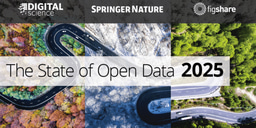FAIR Data Principles 3: Applying FAIR Principles across the (ocean) data management value chain. Webinar
Published in Social Sciences, Earth & Environment, and Computational Sciences

Following on from our Blue-Cloud 2026 FAIR Data Principles 1 (Sep 2023) and 2 (Apr 2024) webinars, the upcoming third webinar is dedicated to exploring the practical application of FAIR Principles throughout the entire data value chain. This comprehensive focus will encompass every stage, from the collection of data and transmission (e.g sensors) through its processing, curation, and application in various products and services. The session will feature real-world use case experiences, showcasing how these principles are effectively implemented across different stages to enhance data utility and integrity.
The webinar aims to broaden the understanding of FAIR Principles beyond their traditional association with research and academic environments. It will highlight their relevance and growing significance in industry and other sectors, demonstrating how adopting these principles can drive innovation, efficiency and collaboration across different domains. Participants will gain insights into how best practices can be leveraged to optimize data management processes and facilitate interoperability between systems. The webinar will feature presentations from the British National Oceanography Centre, the European infrastructure for the Argo programme Euro-ARGO, Oceano Vox community-driven intelligence platform on ocean data acquisition, and EMODnet biology.
By presenting a range of sector-specific examples and use cases, the webinar will illustrate the tangible benefits of implementing FAIR Principles in real-word scenarios.
This includes not only improving the accessibility of data but also ensuring its long-term usability, interoperability and compatibility with various technologies and standards. It offers perspectives on how to effectively integrate FAIR Principles into data management strategies to maximize the value and potential of data in various contexts.
Who should attend
Open science projects in Europe and beyond, Research teams in Research Infrastructures, Ocean Data community, Industry sector, amongst others.





Please sign in or register for FREE
If you are a registered user on Research Communities by Springer Nature, please sign in